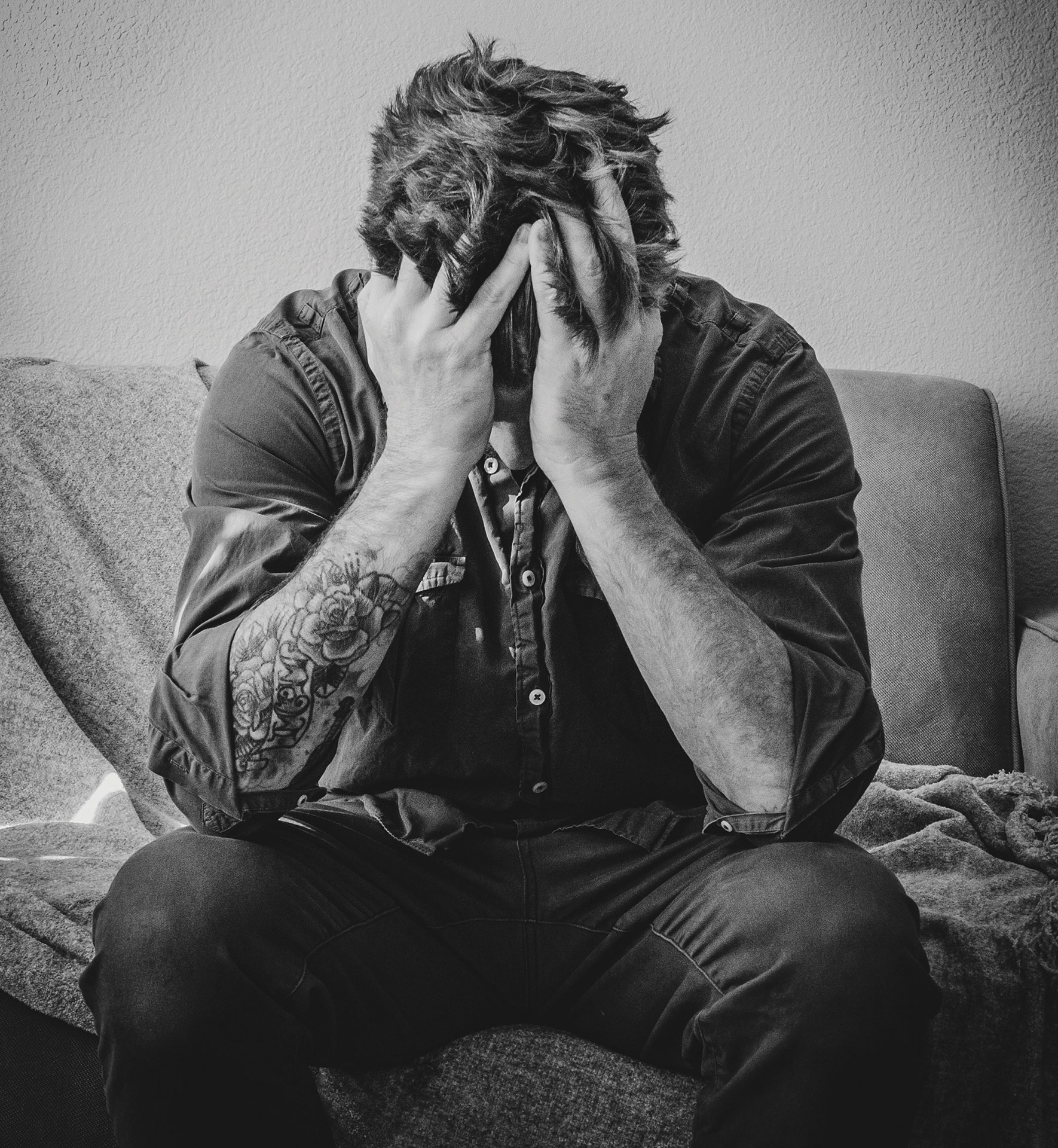
Post-traumatic stress is an injury, not a weakness. It is not a mental disease or disorder, but a serious and potentially life-threatening injury to your brain and its ability to recover and return to optimal functioning after experiencing work traumas. It’s never about what is wrong with you, but always about what has happened to you.
The good news that offers hope to every officer is that, as an injury, post-traumatic stress can be healed. Anyone suffering from it has the potential to fully recover, or at least learn how to manage their symptoms and regain control over their life — leading to post-traumatic growth, where the officer develops enhanced resiliency, increased capacity to recover and to help others, and improved quality of life.
Suffering in silence
The daily traumas of police work can not only injure your brain (PTSD) but can kill you (suicide, our number one cause of death). According to some studies, 19% of officers and dispatchers have significant post-traumatic stress. Other studies suggest that approximately 34% suffer symptoms associated with post-traumatic stress, but do not meet the standards for the full diagnosis.
Police agencies must create wellness initiatives, wellness programs and peer support teams while reinforcing a culture of wellness and resiliency so that officers and dispatchers no longer suffer in silence, fearful of seeking help. Our profession must get to the point where it is not only all right to ask for help, but also expected that you will do so during your career.
Suffering in silence while trying to outlast the symptoms, hoping they’ll eventually just go away, kills more officers than anything else. The weakness lies in not seeking help when there are proven, effective ways to heal from post-traumatic stress, such as eye movement desensitization and reprocessing (EMDR), which will be discussed in an upcoming article. Having the courage to tell someone, “Something’s going on inside me that I don’t like, and I might need some help” can save your life.
Post-traumatic growth results from developing the positive mindset that every challenging moment was an opportunity for you to intentionally choose your character and practice resiliency.
How many…? The cause and cumulative effects
We’re all vulnerable. Every officer, dispatcher, supervisor and commander is susceptible to suffering internal, invisible injuries to their brain due to their daily work traumas.
Trauma is any experience with the potential to affect you in a significant, negative way over a long period of time. How many dead babies can you see without it having a lasting effect? How many mangled bodies in fatal collisions? How many suicides, while seeing all the different ways people find to kill themselves? How many acts of violence can you witness, how many child molestation cases, victims who’ve suffered terribly? How many critical incidents, dangerous situations, life-threatening events can you experience before your brain is affected?
Every one of these experiences has an effect, some more than others. And the effects of trauma are cumulative; they can continue to increase until your brain becomes overburdened, altering its ability to function normally — that’s the injury.
Cumulative post-traumatic stress is caused by prolonged and repeated exposure to traumas and extreme stress rather than one particular incident, such as a shooting. The effects, however, are no less devastating for the officers and dispatchers affected. In fact, more officers suffer from post-traumatic stress who were never in a shooting or anything horrific; they were just doing their job, falsely believing that they had gotten used to all the trauma.
Symptoms and warning signs
There are a multitude of post-traumatic stress symptoms and warning signs. Any one of them is serious and needs to be addressed as soon as possible to prevent it from getting worse.
Since symptoms can be similar to a slowly progressing cancer, officers tend to be the last to recognize them. So, if a loved one or co-worker says you don’t seem like yourself lately, believe them. Understanding that some may only develop a few symptoms while others have many, and knowing that symptoms are experienced in various degrees of severity, increases our ability to recognize the need for help in ourselves, as well as others.
Symptoms of being affected by trauma include lack of good sleep; nightmares; suppressed or impaired memory; difficulty focusing, thinking clearly and making good decisions; flashbacks or reliving events; anxiety; distress; always being tired; depression; risk-taking behaviors; feelings of helplessness; becoming increasingly irritable; anger or rage; unable to feel or feeling numb or dead inside; drinking too much and other substance abuse; difficulty communicating; isolating yourself; becoming uninvolved, detached, disengaged and disinterested; unable to be your “normal” self; seeing things that aren’t real; uncontrollable emotions; and suicidal ideation.
The easiest way to tell if someone is having an issue with a critical incident or cumulative trauma is to ask them to talk about it. If they have a difficult time talking about it, there’s a very good chance they’re having other symptoms as well.
Ways to heal
In police work, it’s inevitable that traumatic, stressful and sometimes horrific things will happen to you. What’s essential is your preparation and your response.
Officers and dispatchers need to daily practice wellness initiatives to strengthen resiliency and to enhance wellness in mind, body, emotions and spirit. Every call matters to your overall wellness and offers the opportunity for you to choose to practice resiliency, choose your character, practice wellness, be useful and helpful while deciding to do good and be the good amid all the bad.
Every good, positive, compassionate, helpful and constructive thing we do will tend to reduce the effects of cumulative traumas.
How family members and friends can help
- Listen carefully. Support without judging, pressuring to be “normal” or condemning.
- Spend time with you and reassure you.
- Give you some private time, but not leave you in long isolation.
- Don’t take your reactions personally.
- Tell and show you that they are there for you.
- Don’t tell you to “Just get over it.”
- Support, care, comfort and nurture.
Things to try after experiencing trauma
- Do physical exercise.
- Practice mindfulness meditation (which will be detailed in an upcoming article).
- Structure and plan your time; keep busy and maintain an active, normal schedule.
- Remember, you’re normal and having normal reactions to trauma; you’re not losing your mind.
- alk to others and express what you are experiencing — talk is one of the most healing medicines.
- Do not numb the pain and confusion with alcohol or other substances.
- Keep doing things that you enjoy, whether you have the energy or feel like it or not.
- Try to get plenty of sleep and rest.
- Make as many daily decisions for yourself as you can.
- Eat well-balanced and regular meals (even if you don’t feel like it).
- Tell your spouse/life partner what you want and need from them; don’t struggle alone or in silence, and don’t expect them to know what to do.
- If symptoms and uneasiness do not subside, seek help from a trauma specialist, preferably one who practices EMDR (visit EMDRIA.org).
Post-traumatic growth
Post-traumatic growth is a positive personality change or transformation following traumatic events that leads to greater resiliency, improved health and enhanced quality of life.
It results from developing the positive mindset that every challenging moment happened for you. It was an opportunity for you to practice coping, for you to intentionally choose your character, and for you to practice and engage resiliency. It’s seeing every challenging thing that ever happens to you as allowing you to practice and build wisdom in order to learn a life lesson from it, so you can later help someone else who goes through the same thing.
If you look at the challenges of life and work in that way, then every difficult thing, every unfair thing, every horrible, negative thing only shows up to make you better, more useful, helpful and understanding. Intentionally training your mind to reframe your challenges so that you always believe that there’s good, even if sometimes you’re the only good, better equips you to transcend the severities of certain traumas.
There is always hope and opportunity to heal from traumas. When we allow others to know our inner struggles and are open to the many ways for healing, life gets better.
As seen in the March 2021 issue of American Police Beat magazine.
Don’t miss out on another issue today! Click below:





